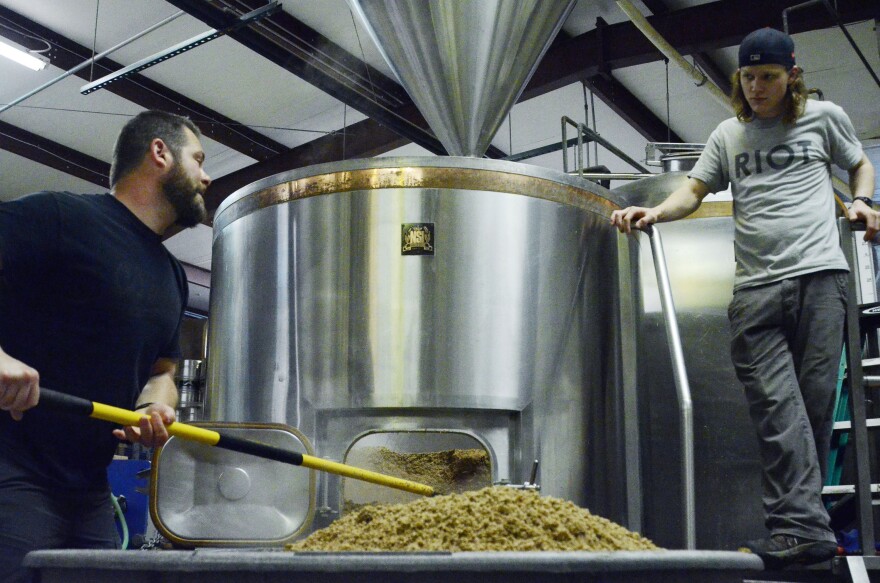Its seeds have more omega-3 value than fish oil and more protein than eggs. Its fiber provided the sails for Jones' Mayflower, and the cloth of the first American flag. It can create a biofuel that powers diesel engines, clean the impurities out of wastewater and be brewed into beer.
Hemp can do it all – and doesn’t get people high.
A different variant of the Cannabis sativa plant does that. Marijuana has a much higher tetrahydrocannabinol (THC) content. THC is the chemical in marijuana that causes a high, and its content in industrial hemp is lower than 0.3%.
This distinction between the two plants was overlooked in 1937 when the federal government passed the Marijuana Tax Act of 1937, which outlawed industrial hemp production along with marijuana.
“We're talking about two different plants,” Republican State Representative Paul Curtman of Union said. “But most people don't realize that there is a difference. They don't realize that hemp is something you can grow and make everything from plastics to brick to cloth to paper from.”
Curtman called the inclusion of hemp in the Marijuana Tax Act one of the worst cases of mistaken identity in American government.
After learning about the distinction between the two plants last year, he introduced House Bill 830 into the Missouri House that would allow farmers to grow this cash crop if they have a license from the Department of Agriculture.
This bill would be welcomed by Jason Small, who is the assistant brewmaster at the O’Fallon Brewery in St. Louis. Small has been using the seeds of the outlawed plant to brew Hemp Hop Rye ale since 2009, and the drink has increased in popularity since then. Brewing the beer is legal, but since it is illegal to grow the plant in the United States, Small’s brewery imports its hemp seeds from Canada.
“It's costly to bring it in and it's costly to test it,” he said. “And then because you have to do those things, you have to order enough of it to make it worth your while. You have to be able to project how much you're going to make for probably a six month period in order to justify the cost of bringing it in.”
If the bill passes, the brewery could cut costs on import taxes and not waste time and resources having the seeds tested upon entering the country. If the bill were to pass, Small would look for a domestic supplier for hemp.
“If you try to be the first in the industry with a product or a service, people begin to associate that product or service with your company, and it makes it difficult for people to switch brands later on because you're so well established.” said Senior Associate Dean of the Trulaske College of Business Steve Ferris .
Small just hopes that hemp production will be legalized because of the sheer usefulness of the plant.
“Hemp is the fastest growing biomass that we know of,” Small said. “You can ferment it and turn it into ethanol, you turn it into plastic, you can even make a composite wood with it.”
The bill is not on any House calendar as of now, but Small hopes to see progress soon. Co-sponsor Representative Galen Higdon, a Republican from St. Joseph, said the committee is still working on the language for the bill.
“I'm honestly just pretty shocked that it’s taken this long for states to start realizing that there are things that can be done with it,” Small said.
Note: An earlier version of this article incorrectly connected explorer Christopher Columbus to the ship the Mayflower. It also incorrectly identified the Mona Lisa as having been painted on a hemp canvas. It was in fact painted on poplar wood. These errors have been corrected.
We also have to apologize for a significant error in our reporting in our original reporting of this story. We said that Tom Smith, the owner of Flat Branch Pub & Brewing in Columbia, owned a company that was putting together an equity group to finance a hemp processing infrastructure on 6,000 acres of land he owned. It turns out the company he owns has nothing to do with hemp. Our reporters got that information from a third party that was unreliable, and they did not confirm that information. Smith says he does have an interest in the future of the hemp industry in Missouri and has testified in favor of House and Senate bills regarding hemp, but that's it. The portion of the article that mentioned Smith has been removed from this post, and the audio of the story has also been removed. We sincerely apologize for the error, and are re-evaluating the editorial structure that allowed this error to make it to air.


